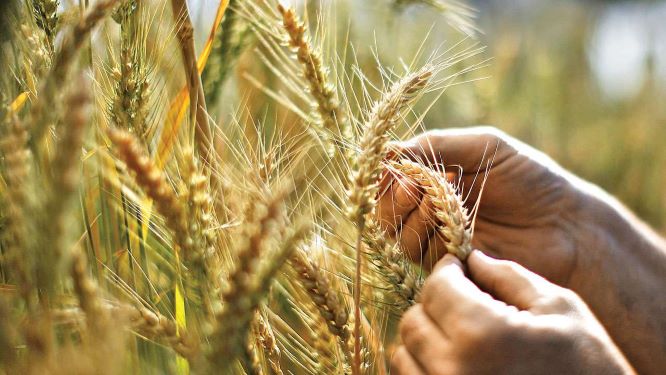

Farmers are quintessential in food security
In a study, researchers have demonstrated how farmers’ involvement in scientific studies can improve and accelerate crop variety recommendations. In India, Nicaragua and Ethiopia, farmers participated in a crowdsourced citizen science approach called tricot.
The science approach called tricot – is triadic comparisons of technologies- in which each farmer plants seeds of three crop varieties randomly assigned to them from a broader set of varieties. The farmer then ranks the varieties according to different characteristics such as early vigour, yield, and grain quality.
Read: The Case for Farming in our Cities
There are several advantages in getting farmers to participate in data gathering, according to Jacob van Etten, senior scientist at Bioversity International and lead author of the paper.
“Farmers are the final users of the seeds, so they know best what works for them under local conditions. They test in the environment to which the varieties should be adapted. Also, by doing this on their own farm, they are able to see the full crop cycle from seed to final product,” van Etten said.
“In other formats for on-farm experimentation, farmers only get snapshots of the crop. Another aspect is that farmers contribute with their land and effort, reducing the costs of the trials. Seeds are generally provided for free, but other formats of experimentation often require renting land,” he explained.
The researchers spread out the tricot trials over different seasons and landscapes to obtain a unique dataset covering 842 plots of common bean (Phaseolus vulgaris) in Nicaragua, 1,090 plots of durum wheat (Triticum turgidum ssp. durum) in Ethiopia and 10,477 plots of bread wheat (Triticum aestivum) in India.
Read also: Newly-Decoded Wheat Genome Opens Door To Boost Crop Yields
Trials were carried out between 2012 and 2016 during three cropping seasons in Ethiopia, five cropping seasons in Nicaragua, and four cropping seasons in India (Uttar Pradesh and Bihar), as part of the CGIAR Research Program on Climate Change, Agriculture and Food Security. The CGIAR is the world’s largest global agricultural innovation network.
The rank-based feedback format allowed even those with low literacy skills to contribute their evaluation data through various channels, including mobile telephones. Scientists then linked the farmer-generated data with agroclimatic and soil data.
Discussing the significance of the study, Ambica Paliwal of Bioversity International, India, emphasized that in the vulnerable, low-income areas, climatic analysis of variety performance is possible with trial data generated directly by farmer citizen scientists on farms.
This simple format addresses the challenge of variety replacement for climate adaptation in a way that is, at the same time, scalable and demand led.
Tricot trials can track climate trends as they manifest themselves on farms, adjust variety recommendations and recommendation domains, and contribute to understanding how climate affects on-farm varietal performance.
A survey conducted in April 2017 in Bihar indicates that 83 percent of farmers in Samastipur, 95 percent in Chhapra and 95 percent in Vaishali districts want to grow the varieties evaluated in the participatory trials under Bioversity International’s ‘Seeds for Needs‘ initiative which works with farmers to research how crop diversity can help minimise the risks associated with climate change.
Jacob van Etten underscored the importance of collaborating with farmers: “I think that farmer collaboration is essential for selecting climate-resilient varieties. Without feedback from farmers, scientists may be promoting varieties that have low acceptance among farmers, even though they may be very tolerant of extreme weather.”
In a significant move toward advancing green energy and industrial growth in the state, Himachal…
Golabl chemical conglomerate BASF has announced that its now offering the world’s first biomass-balanced polyethersulfone…
In a crucial stint to bolster the biogas sector and sustainable dairying in the country,…
TotalEnergies SE has received approval to proceed with its Middlebrook solar and battery project in…
Andhra Pradesh Chief Minister Chandrababu Naidu has inaugurated the Rs 1,000-crore green hydrogen plant of…
The BITS Pilani has developed an innovative solution for managing landfill leachate, domestic septage, and…